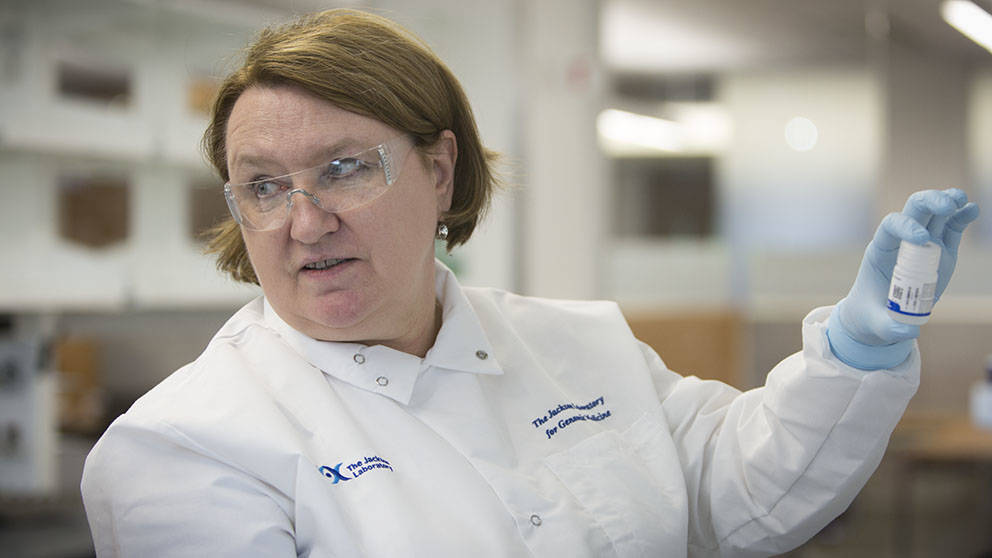Our lungs are continuously exposed to large numbers of airborne pathogens, including viruses. With an $11M grant, a major new research center led by JAX Professor Karolina Palucka, M.D., Ph.D., will explore the mechanisms of antiviral lung immune function and the role of our lung microbiome. The Cooperative Center on Human Immunology will also investigate changes brought about by two diseases: adult lung cancer and childhood asthma.

Everyone knows the misery of an “upper respiratory infection.” Our lungs are a vital interface between us and our external environments – they bring oxygen from the air into our bodies, and they expel carbon dioxide. They also offer an entry point for pathogens such as viruses. The epithelial cells and mucosal surfaces lining the lungs provide a protective barrier when pathogens intrude, and they are the site of the initial stages of the all-important immune response.
Unfortunately, what we know of the vital mechanisms underlying lung-tissue-specific immune function is incomplete. In a typical immune pathway, dendritic cells present pathogen-derived antigens (that is, molecules specific to the pathogen) to T and B cells to induce an immune response. In the lung, it is thought that immune activity also involves an interplay between the host epithelial and immune cells, the lung When good bacteria go bad… our bodies can turn against us.It is a new frontier in human health: Revealing the powers of our own microbes to fundamentally change our understanding of diseases of all kinds. microbiome , and external microbes, including pathogens. But the nuanced cross talk between the various cellular and molecular components has not been thoroughly characterized, and its impact on the immune response to respiratory viral infections remains unknown.
With a five-year, $11M grant from the National Institute of Allergy and Infectious diseases, a multidisciplinary team led by Karolina Palucka, M.D., Ph.D.Conducts research to understand how vaccines work and to define precisely the immune mechanisms that underlie vaccination, with a focus on cancer immunotherapies.JAX Professor Karolina Palucka, M.D., Ph.D., will work to fill in these knowledge gaps. The research program for the newly funded Cooperative Center on Human Immunology, “Modulation of lung immune responses to viral infection,” will explore the hypothesis that the quality and magnitude of immune response to respiratory viral infections are determined by the interactions between microbiota and host lung and immune cells. For its research, the Center will bring together scientists who specialize in human immunology, lung biology, virology, microbiome biology, genomics and bioengineering.
The Center will focus on how the networks of epithelial and immune cells regulate the immune response to viruses in the lung. It will also define a microbiome-driven immune set-point in lung tissue, and determine if disease alters this set point by investigating two different pulmonary diseases: childhood asthma and adult lung cancer. Finally, the Center will develop innovative models of human lung-immune dynamics to determine the mechanisms and pathways underlying lung antiviral responses.
“We will focus on dendritic cells, which are the sensors, inducers and modulators of antiviral immunity, and how they function in the human lung at the molecular level,” says Palucka. “The studies will contribute insights that have the potential to improve outcomes for infectious and other diseases, including lung cancer, that originate in or secondarily impact the lung.”